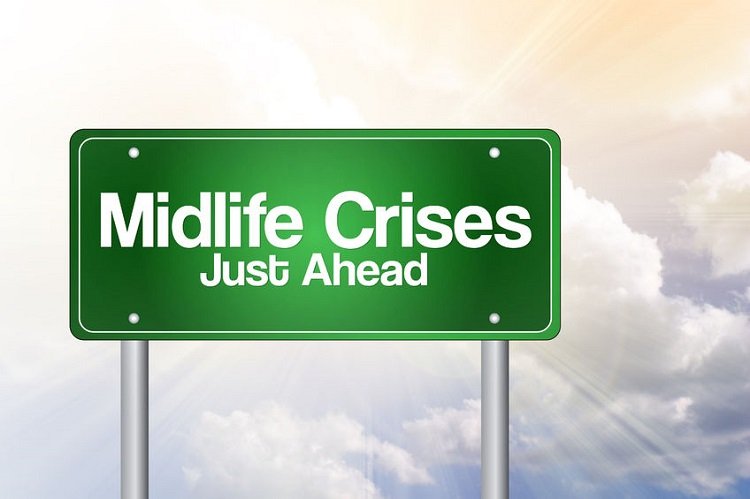Anyone can experience a mid-career crisis, it can affect even the most objective people with fulfilling professions.
When it starts to occur, it can inflict pain on the individual experiencing it and cause a loss of efficiency for employers.
So what might some of the causes of mid-career crisis be? Why does it seem to coincide during midlife? What are some of the ways to manage and resolve it when you’re undergoing the process?

A developing stream of literature in economics began to examine what’s actually occurring during midlife and provides insight on what might aid people to better handle these episodes.
Examining a nationwide survey conducted in the UK, a set of economists working with Professor Andrew Oswald of The University of Warwick established that job satisfaction in the average employee declines radically in midlife. Mid-career crises are, in fact, a widespread consistency, rather than the bad luck of a few individuals.
The good news is that in the second half of people’s career lives, job gratification rises again. As seen in many cases, satisfaction can reach even higher points than earlier on in the career, in effect forming a U-turn.
Following that research, it was discovered that this age-related U-turn in career gratification is part of a much wider phenomenon. A comparable midlife all-time low is measureable in people’s complete life satisfaction and was found in more than 50 countries.
Typically, life gratification is elevated in young people and then it starts to decrease in their early 30s. It bottoms out between the mid-40s to mid-50s. Then the U-turn occurs across the spectrum, affecting top-level executives in addition to working class professionals and parents who stay at home. It affects couples who have never had children as well as parents who are single and parents with four children. In brief, it can happen to anyone.
So what causes the midlife dive in life and career gratification if it’s really independent of people’s circumstances? If it’s such a common phenomenon, why does it come by surprise?
You can analyze the answer to that with this German survey which followed 23,000 people between 1991-2004, and reports what their current life gratification was, as well as their expected satisfaction in five years. Due to the same people being interviewed year by year, it was possible to see if their predictions for their future were right.
It seems that young people are very optimistic and expect a substantial increase in life gratification as opposed to anticipating the dive down. Individuals who are young usually believe that they will beat the average because they will be they lucky ones to climb to the top in their career, have a successful marriage, and children who are healthy.
There are Neuroscientists who believe that being too optimistic is due to biased information that processes in the brain, making it difficult to balance overly enthusiastic outlooks in young people.
As people age, aspirations don’t often turn out as beautifully as they had been planned. People might not reach the top level in their career as fast as they would’ve liked to. If they do, they may not find what they were looking for because the high income and prestige that came with reaching the top was not as satisfying as they thought it would be.
This disappointment also results in people adjusting their expectations for the future. Midlife ultimately becomes a phase of double misery that consists of dreams that are evaporating and disappointments that come from experience.
Ironically, people who quantitatively have less cause to complain usually suffer the most. They feel disappointed and unappreciative of themselves specifically because their unhappiness is not justified, which ultimately can form a vicious circle. Several similar cases, including this one, were described in The Atlantic’s cover story on midlife crisis.
It states that it is people in their mid-50s come to terms with the way life has turned out. The brain begins to feel less disappointment about missed opportunities as studies have shown. Feeling less remorse and accepting life for what it is, collectively helps increase life gratification again. Since people over the age of 50 tend to discount their possible future satisfaction, the results tend to come as a surprise which increases satisfaction even further.
Although mid-career crisis can be a challenging phase in life, it may also be a chance to reflect and evaluate a person’s strengths and weaknesses. The key is not to dwell at the lowest point of the U-turn because the bright side is, things can only go up from that point.